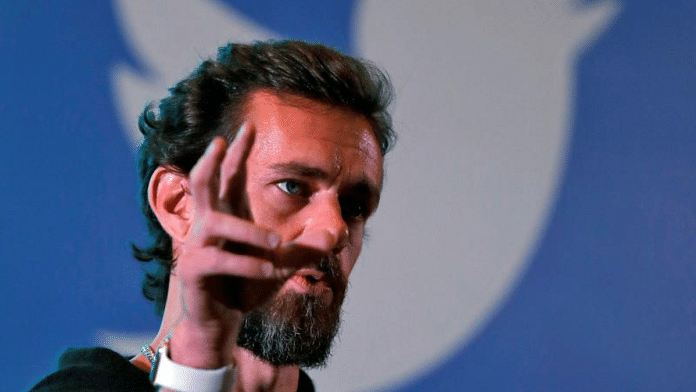The advent of global social media platforms has changed how societies communicate, engage in political discourse, and exercise freedom of speech. Digital and social media revolution have raised crucial questions about national sovereignty and supremacy of the democratic process, as seen in the recent controversy involving former Twitter CEO and co-founder Jack Dorsey and the Narendra Modi government.
In an interview with the American YouTube show Breaking Points, Dorsey claimed that in 2021, when he was still the CEO of Twitter, the Indian government sought to censor anti-establishment content related to the farmers’ protests. According to Dorsey, it wasn’t just the critical journalists who were intimidated, but the government also threatened to shut down the microblogging platform and raid employees’ homes if its instructions weren’t followed.
These allegations were vehemently denied by the Modi government, which accused Twitter of violating Indian law and refusing to acknowledge its sovereignty. “Several foreign forces wake up when elections approach,” said Union information and broadcasting minister Anurag Thakur.
This incident presents a compelling case for examining the increasingly complex relationship between global social media conglomerates and national sovereignty. The issue at the core is the balance between the promotion of free speech and the respect for a nation’s autonomy and laws.
The Indian Parliament, instituted by the Constitution, is the supreme legislative body that reflects the collective will of the people. The farmers’ protest against the agricultural laws passed by the Parliament in September 2020, amplified by Twitter and other social media platforms, resulted in their retraction in December 2021. We have no method to know if the agitating farmers were representing the will of the entire nation as the protests were largely concentrated in northern and central Indian states. Moreover, we didn’t have any perspective from farm labourers, traders, and consumers. The voice of farmer organisations was amplified as the voice of the people of India.
While the government’s submission and repeal of the farm laws could be seen as a triumph of democracy, it also raises concerns about the disproportionate influence that social media platforms wield over national politics. Merits or demerits of any law aside, a sovereign nation should never be forced to amend its legislation due to social media tactics and its power to generate “collective opinion”.
Social media platforms wield unprecedented power over the shaping of public opinion, which forms the very foundation of a functioning democracy. That is why they have become indispensable in political campaigns. This power, when unchecked, can potentially disrupt the democratic process, distort public discourse, impact electoral outcomes, and even incite social unrest — it happened in Myanmar where, according to Amnesty International, Meta algorithms promoted violence against Rohingyas.
Also read: Murder of democracy, says Congress as Dorsey alleges pressure from Modi govt during farmers’…
Look at the larger context
As commercial entities with global reach, social media platforms have their own ideological interests and interpretations of free speech, which may not align with a nation’s laws and cultural context. That is where the potential threat to national sovereignty arises.
Consider the broader context. Following the acquisition of Twitter by Elon Musk in October 2022, speculation arose about the organisation changing its stance on India after the new CEO laid off 90 per cent of the Indian staff. Meanwhile, he also recognised the sovereignty of Indian law. “Social media laws in India are quite strict, and Twitter can’t go beyond the laws of the country,” he further said. Such decisions underscore the tension between a multinational corporation’s commercial interests and the respect for national sovereignty.
The debate, therefore, is not about curbing free speech but about ensuring that the promotion of free speech does not become an excuse for infringing upon a nation’s sovereignty. It is about safeguarding the supremacy of democratic institutions such as the Parliament.
Balance free speech & sovereignty
Global social media conglomerates must respect the national laws of the countries they operate in and collaborate with governments rather than acting unilaterally. Simultaneously, nations should establish clear and fair digital laws that uphold democratic values and prevent their misuse by powerful platforms. The Indian government’s stance against Twitter’s alleged violations is a step in this direction.
In any case, Twitter of the Dorsey era was not a flat platform. It created a hierarchy by arbitrarily giving blue tick verifications to a select few, thus amplifying their voice by providing them with a pedestal. Elon Musk has tried to rectify it.
The balance between free speech, national sovereignty, and social media influence — an equitable digital order — would ensure that the narrative is not monopolised by a handful of conglomerates and that the commitment to freedom is not used as a cover to disregard national laws and sovereignty.
India’s experience with Twitter underscores the need for a nuanced understanding of the role and responsibilities of social media conglomerates in today’s globalised world. Dorsey’s allegations against the Indian government and the Modi government’s response highlight the friction between the two.
It is important for academia, policymakers, and society at large to consider these incidents as part of a broader dialogue on the relationship between social media and democracy. The Indian example serves as a case study for understanding the complexities involved and the need for an equitable digital order.
The Indian government’s staunch defence of its national sovereignty and legal jurisdiction in this scenario sends a clear message: While social media platforms play an important role in democratic discourse and free speech, they must operate within the confines of national law. The balance between upholding democratic values and maintaining national sovereignty is delicate but necessary.
Dilip Mandal is the former managing editor of India Today Hindi Magazine, and has authored books on media and sociology. He tweets @Profdilipmandal. Views are personal.
(Edited by Humra Laeeq)



